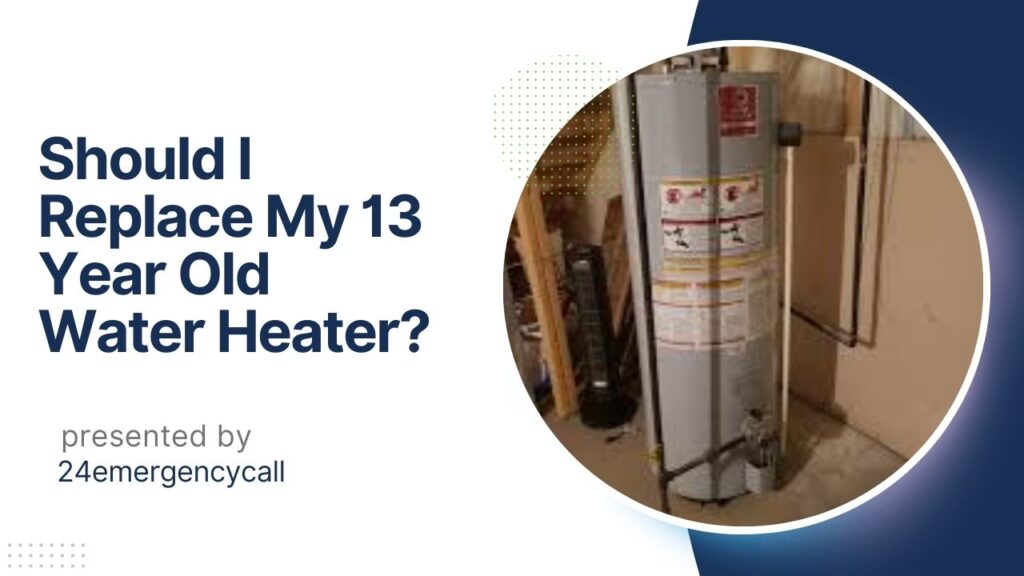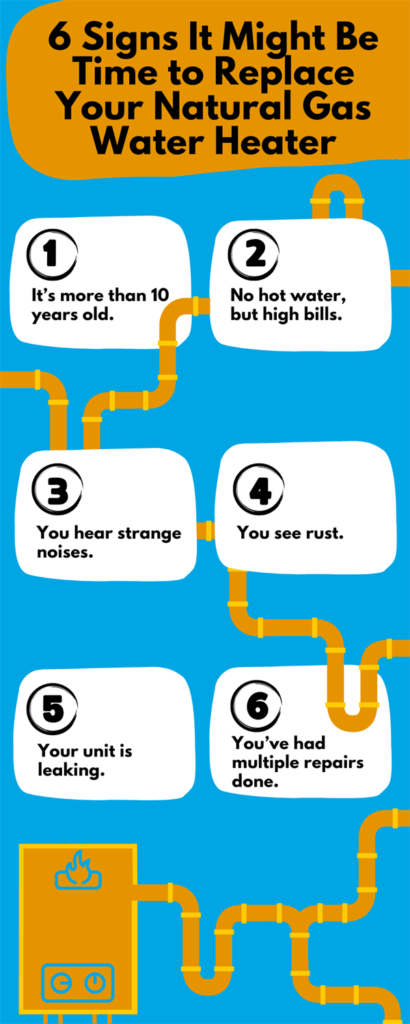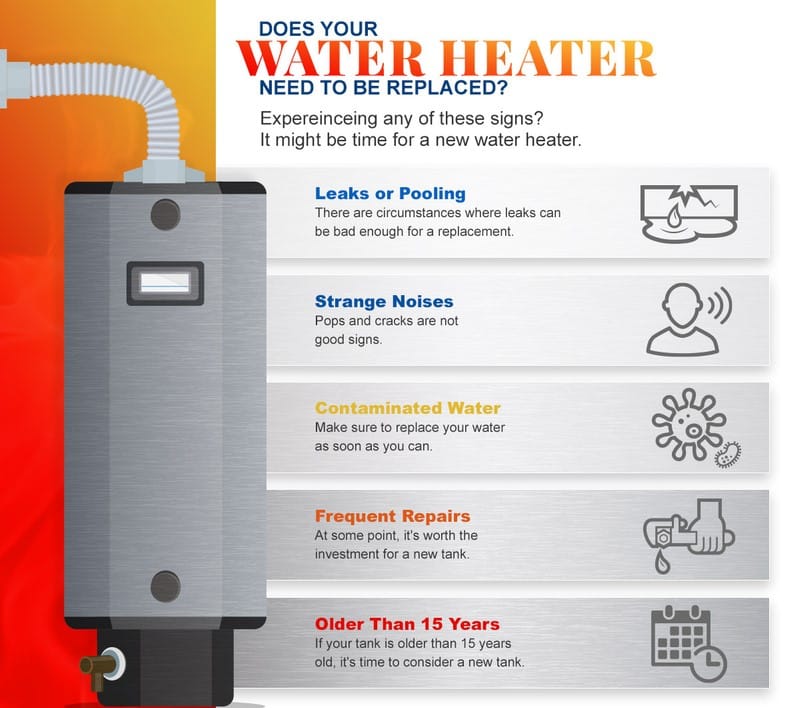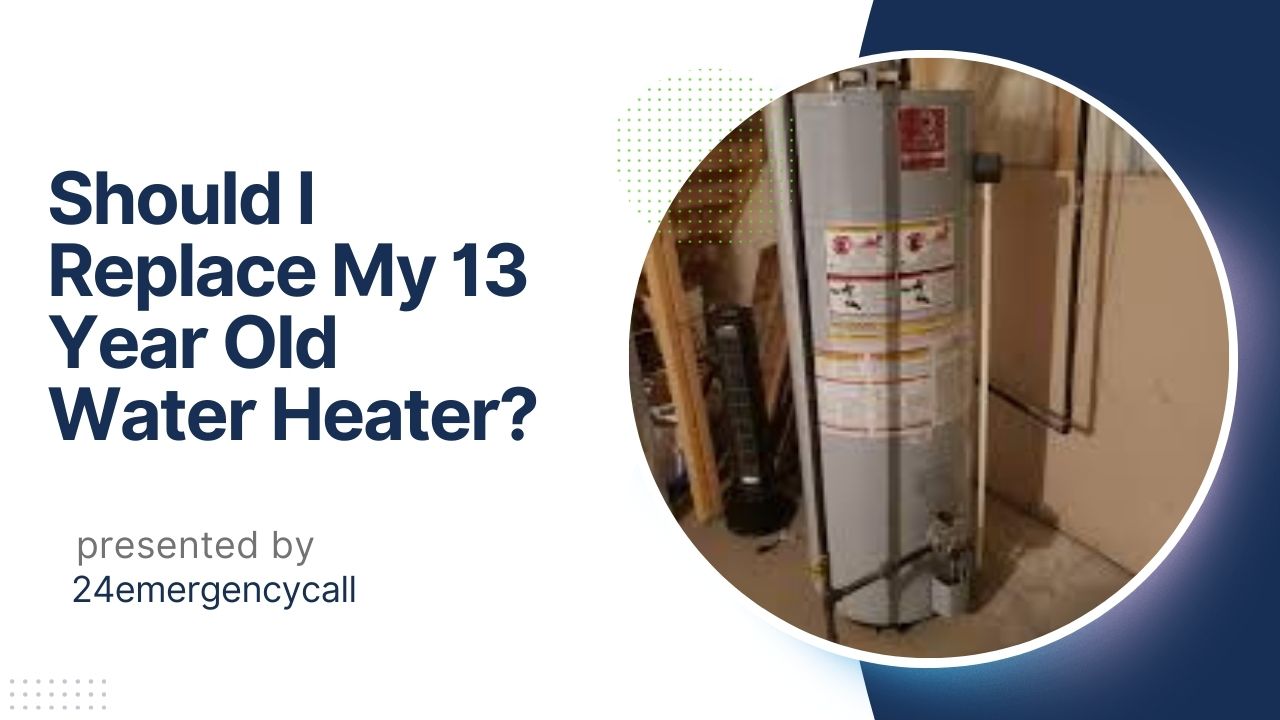Should I Replace My 13 Year Old Water Heater
As water heaters age, they often develop problems that affect their efficiency, safety, and operating costs. For homeowners with a 13-year-old water heater, assessing the need for replacement can be essential to maintaining home comfort and energy savings.
Here, we provide a detailed overview of the factors you should consider before making a replacement decision, helping you make an informed choice for your home.

Should I Replace My 13-Year-Old Water Heater?
If you’re wondering whether you should replace your 13-year-old water heater, there are several factors to consider. Here’s a guide to help you make an informed decision:
Understand the typical lifespan of water heaters
Water heaters are designed to last, but not indefinitely. While some models can operate efficiently for up to 20 years, the average lifespan of most units is about 10 to 15 years. At 13 years, water heaters typically begin to show signs of wear and potential failure. Age, wear and tear, and your maintenance practices can all influence the longevity of your unit.
Key indicators of aging:
- Declining efficiency: Older water heaters often struggle to heat water effectively and consume more energy to maintain the desired temperature.
- Frequent repairs: Units more than a decade old typically need repeated repairs, which can add up over time.
- Sediment buildup – Over time, sediment can build up in the tank, reducing efficiency and increasing the risk of leaks.
If you are looking heater repair services then you can check emergency hot water heater repair near you at the sameday.
Warning signs that your water heater may need a replacement

Several warning signs indicate that a water heater is nearing the end of its life. If your 13-year-old water heater is displaying any of the following symptoms, it may be time to consider a replacement:
- Rusty or discolored water – Rusty water is a clear sign of corrosion within the tank, which can lead to leaks.
- Unusual noises – Rumbling or knocking noises are often due to sediment buildup, which can reduce efficiency and damage internal components.
- Inconsistent temperature – If the water heater can no longer consistently provide hot water, it may be due to degradation of the heating element.
- Leaks – Even minor leaks can indicate tank failure, which often requires a complete replacement.
Comparing Repair Costs and Replacement Costs
It is essential to weigh the cost of repairing an older water heater versus investing in a new one. Repairs to older models can usually provide only a temporary solution, as components continue to degrade over time. Additionally, newer models offer improved energy efficiency, which can result in significant savings on your utility bills over the years.
Cost Breakdown:
Typical Repair Costs: Repairing items like thermostats or pressure relief valves can cost between $100 and $300, but could become frequent as the unit ages.
Replacement Costs: Installing a new water heater typically ranges from $500 to $1,500, depending on the type (tank or tankless) and size.
Benefits of Upgrading to a New Energy-Efficient Water Heater
Switching to a new water heater can offer significant benefits in terms of performance and cost effectiveness. Modern water heaters are designed to meet higher energy efficiency standards, which can lower monthly utility costs and reduce environmental impact.
- Lower Energy Bills: New water heaters, especially ENERGY STAR-qualified models, can reduce energy use by up to 20%.
- Consistent Hot Water Supply: Modern units provide a steady flow of hot water without temperature fluctuations.
- Increased Safety: New models come equipped with enhanced safety features, including better temperature and pressure controls, reducing the risk of accidents.
How to Choose the Right Replacement: Tank or Tankless Water Heater
If you decide to replace your water heater, the next step is choosing between a traditional tank water heater and a tankless model. Each option has its unique benefits and considerations:
Traditional Tank Water Heaters
Pros: Lower initial cost, easy installation, compatible with most homes.
Cons: Lower energy efficiency, limited hot water capacity, higher space requirement.
Tankless Water Heaters
Pros: Energy efficiency, endless hot water, compact design.
Cons: Higher initial cost, requires professional installation, may need electrical or gas line upgrades.
Environmental Considerations for Replacing an Old Water Heater
Replacing an old water heater with an energy-efficient model not only saves energy costs, but also reduces your carbon footprint. By choosing a model with a high-efficiency rating, you can reduce greenhouse gas emissions and contribute to a more sustainable home.
Recycle your old unit: Most parts of a water heater, including metal and plastic, can be recycled. Many installation companies offer removal and recycling services.
Water conservation: Newer models are often designed to minimize water waste, which benefits both utility bills and the environment.
How to decide when replacement is the best option

When evaluating your 13-year-old water heater, consider the following factors to determine if it’s time to replace it:
- Frequent repairs: If the unit requires constant repairs, replacement is likely to be more cost-effective.
- Increasing utility bills: An older water heater may consume more energy than a newer model.
- Signs of deterioration: Rust, corrosion, and sediment buildup are indicators of irreversible wear.
Conclusion
Since your water heater is 13 years old, it’s a good time to start considering a replacement. Look for signs of wear, evaluate the cost of repairs, and explore the benefits of newer, more efficient models. By making an informed decision, you can ensure a reliable and efficient hot water supply for your home.
People Also Ask – FAQs
How long should a water heater typically last?
Most water heaters last between 10 and 15 years. With proper maintenance, some models can extend to 20 years, but this is less common.
Is it cheaper to repair or replace an old water heater?
For units older than ten years, replacement is often cheaper due to increased repair costs and decreased efficiency.
What is the best water heater replacement for my home?
The ideal replacement depends on your home’s water usage, budget, and energy efficiency preferences. Tankless models are more efficient, but have a higher upfront cost.

